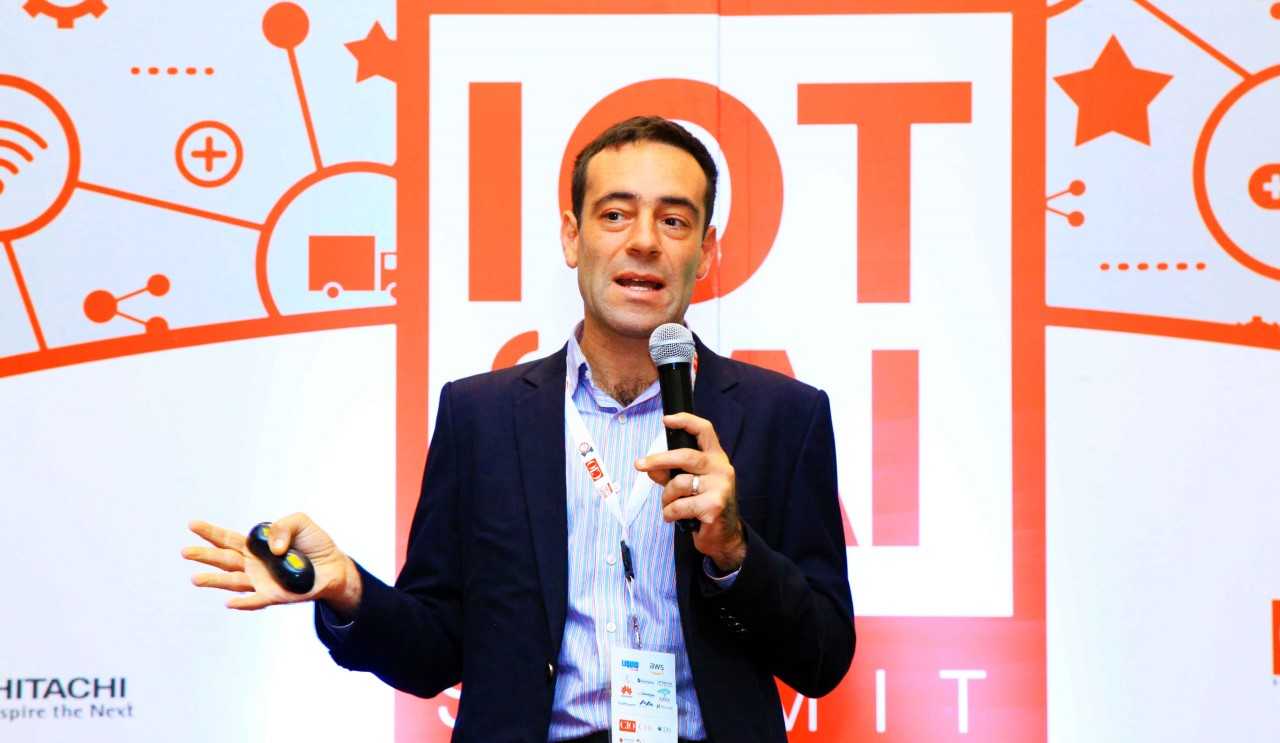Adam Lane, Senior Director, Public Affairs, Southern Africa - Huawei
Universal Healthcare Care, one of Kenya’s key agenda in the country’s Big Four plan is queued for a major boost following Huawei’s passion and commitment to actively support the sector in-conjunction with the ICT space, Adam Lane, Senior Director, Public Affairs in-charge of the Southern Africa region said during the recent Internet of Things (IoT) and Artificial Intelligence (AI) Summit in Nairobi.
While making a presentation at the Summit themed: Harnessing the Power of of IoT & AI to Drive Customer Experience, Lane noted that by using the Internet of Things (IoT), which in this regard would be referred to as the Internet of Medical Things (IoMT) within the healthcare industry, Huawei is committed to support and ultimately make sure that in healthcare, greater purpose is the achievement of less costly and more information-driven and efficient patient care.
Among the areas that Huawei would continue to explore would range from wearable devices and wireless pill bottles, nanotechnology and ingestibles, and network-enabled medical devices like stethoscopes that can transmit cardiac data directly into a patient’s electronic health record (EHR).
“IoT is something that most are well-familiar with, but for the sake of clarity, Huawei defines it here as the purposeful connection of intelligent sensors, devices, and software to computer networking systems using technology in order to promote an inter-functionality that serves a greater purpose effectively and conveniently,” said Lane.
“IoT is something that most are well-familiar with, but for the sake of clarity, Huawei defines it here as the purposeful connection of intelligent sensors, devices, and software to computer networking systems using technology in order to promote an inter-functionality that serves a greater purpose effectively and conveniently.”
Adam Lane, Senior Director, Public Affairs – Southern Africa, Huawei
Dr. Sultani Matendechero, Head of Public Health at the Minstry of Health is assertive that by preventing disease, public health ensures that resources remain available in adequate proportions for all deserving cases. He notes that Huawei’s expected support in universal healthcare in the country is a step in the right direction since promoting human health through effective use of technology can among other things, protect the general population from disease and ill health. Accordingly, public health is an important driver of the universal health coverage pillar of the big four agenda.
While affirming that IoT and AI can transform the delivery of public services and the lives of citizens in the country, Lane said there is tremendous potential to increase efficiencies and quality in areas such as agriculture and housing as well.
Nothing that while in health, the use of AI is already providing effective triage and initial consultations for patients. in agriculture, various sensors can be used for irrigation, cattle, and cold chain amongst others.
In the health sector, the technology is even making intelligent analyses from patient data to predict commodity orders and potential disease outbreaks. To achieve these we need to improve connectivity and the use of smart devices by both individuals, enterprises and public sector organizations so we can collect and use data.
Our ultimate goal is to prolong life. In doing this, we aim at not just adding “more days to people’s lives”, but also “more life into people’s days”. The path to our goal is two pronged: to prevent disease; and to promote human health. This is can only be achieved through organized efforts and informed choices of society.
IOT and AI have the capacity to fundamentally improve delivery of public health interventions. The role of data in establishing evidence based approaches to planning and decision making cannot be overemphasized. IOT Provides an excellent platform for optimization of such evidence base. In establishing the burden and distribution of disease, we’ll collected data which is promptly and effectively stored can be invaluable in designing interventions. IOT can be utilized in maximizing the impact of such interventions through efficient deployment of resources.
Dr. Matendechero noted that AI is a proven means of ensuring consistency and precision. Public health interventions often require a high level of indefatigable reproducibility. Best practice reveals the need for minimum interference in public health interventions and procedures. AI is an excellent tool through which error can be maintained at a minimum.
IOT and AI can greatly assist the Kenyan government in achieving the big four agenda, especially universal health coverage. The impressive mobile phone coverage, internet connectivity and mobile money transfer is a giant opportunity that may be seized to make this happen.
